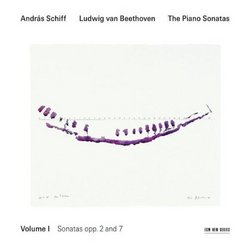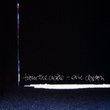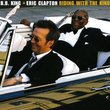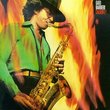| All Artists: Ludwig van Beethoven, András Schiff Title: Beethoven: Piano Sonatas, Opp. 2 & 7 Members Wishing: 1 Total Copies: 0 Label: ECM Records Original Release Date: 1/1/2005 Re-Release Date: 9/27/2005 Genre: Classical Styles: Chamber Music, Forms & Genres, Sonatas, Historical Periods, Classical (c.1770-1830), Romantic (c.1820-1910) Number of Discs: 2 SwapaCD Credits: 2 UPCs: 028947630548, 028947630548 |
Search - Ludwig van Beethoven, András Schiff :: Beethoven: Piano Sonatas, Opp. 2 & 7
 | Ludwig van Beethoven, András Schiff Beethoven: Piano Sonatas, Opp. 2 & 7 Genre: Classical
No Description Available. Genre: Classical Music Media Format: Compact Disk Rating: Release Date: 27-SEP-2005 |
Larger Image |
CD DetailsSynopsis
Product Description No Description Available. Genre: Classical Music Media Format: Compact Disk Rating: Release Date: 27-SEP-2005 Similar CDs
Similarly Requested CDs
|
CD ReviewsNot typical but very interesting! Robert Chan | USA | 12/02/2005 (4 out of 5 stars) "I love Andras Schiff's playing Mozart and Bach but I always wonder how could he adjust his style to Beethoven. (I have not heard his concertos recording with Haitink) Yes, his Beethoven Sonata is slightly slower than some pianists (well... I probably would rather say 'more flexibility' in terms of tempo) and far less percussive, but not less dramatic. Because of his unique sound and interpretation, I felt very refreshing listening to them. In an era that most pianists sound so similarly, it's fun to have people that could offer individuality and freshness to the old warhorse. 4 stars only because of a mediocre recording quality. (5 stars for interpretation, 3 stars for muddy sound)" A Wonderful Surprise jonsj | New York, NY United States | 03/19/2006 (5 out of 5 stars) "I have not been a fan of Andras Schiff's in the past. In general, I've found his Mozart and Schubert performances to be fussy and precious, despite their elegance and surface polish. Beethoven does not seem tempermentally the right fit for Schiff, so I was particularly guarded about exploring these new discs. But I have to say if this first volume is indicative of what's to come, this will be a magnificent Beethoven sonata cycle. Although these performances are as well groomed as any of Schiff's past performances, his style has adopted a bit bolder and more dramatic profile. His playing is more forcefully articulated (in the past, I've had a hard time with his dainty pecking at notes), and his tempi are more measured but also natural sounding, and less sheerly fleet. In short, Schiff brings a welcome touch of drama to these early sonatas, while not sacrificing the scrupulous care and lyricism that is his signature. And what glorious music this is! These sonatas have such extraordinary richness and complexity despite their being youthful works. Schiff takes all repeats. I found the set very well recorded too, though I see other reviewers have reservations on that front. Highly recommended." András Schiff defines Beethoven's piano sonatas Scaffa | Sweden | 01/05/2009 (5 out of 5 stars) "This review refers to the eight volumes of András Schiff's cycle of Beethoven's piano sonatas released by ECM Records. The lay out of the volumes is as follows:
Vol 1: opp. 2 and 7 Vol 2: opp. 10 and 13 Vol 3: opp. 49, 14 and 22 Vol 4: opp. 26, 27 and 28 Vol 5: opp. 31 and 53 Vol 6: opp. 54, 57, 78, 79 and 81a Vol 7: opp. 90, 101 and 106 Vol 8: opp. 109, 110 and 111 All recordings except those on the last volume are of live performances (from 2004 to 2006) in the Tonhalle Zurich in front of a very quiet audience. No coughing between movements, no applause at the end, and hardly any noise at all during performances. The last volume was recorded in the empty hall of the Reitstadel in Neumarkt, Germany. The sound quality is superb throughout. The separation of the channels is done so that you have the higher notes, located on the right hand side of the keyboard, in the right channel, and the lower notes in the left channel. Personally I find this the only acceptable way of organising piano music into a stereo recording. It gives you the impression of sitting in with the pianist. Schiff's performances are of the highest order. He even manages to breathe new life into often-heard sonatas such as the Op 27-2, Moonlight. Pianists have not been able to agree on how to interpret Beethoven's instructions for the first movement of the Moonlight. Some, including Schiff, take Beethoven literally and push down the pedal for the entire movement (this and many other things is explained by Schiff in his Wigmore Hall lectures which are available for free download from the Guardian website). Gulda did the same in his 1950s cycle but not in his 1960s cycle. The result is mesmerising and beautiful. In addition, Schiff plays the Moonlight sonata at a slightly faster speed than what is commonly done, which makes for a fresh and contemporary take on this well-known piece. No single cycle will probably satisfy you completely. I find much of Barenboim's playing on his 1960s cycle very odd but his performance of the Hammerklavier would follow me to a desert island. Gulda's 1960s cycle is mostly excellent (as is the sound, but one has to accentuate 'mostly' here because there are some awkward splices) but I can't think of any better way of starting your exploration of these magnificent works than by listening to Schiff's cycle. He has a sublime touch, a masterly control over his means and an artistic sensibility that will convince you that this is how Beethoven should be played. And it's all rendered in glorious sound. Highly recommendable. " |

 Track Listings (12) - Disc #1
Track Listings (12) - Disc #1![Berlioz: Les Troyens [Highlights]](https://nationalbookswap.com/cd//m/50/4050/6024050.jpg)











